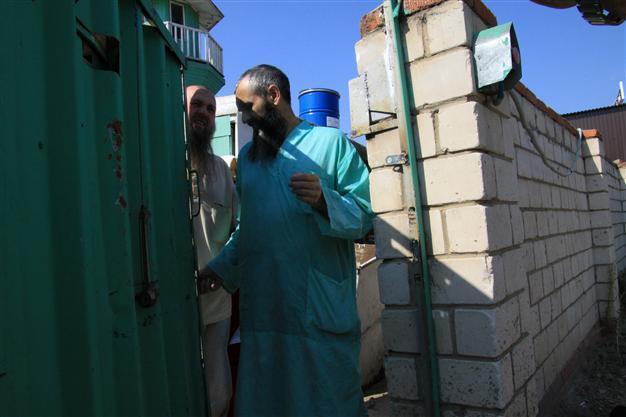Underground sect found after nearly a decade in Russia's Kazan
MOSCOW - Agence France-Presse

Members of an underground sect in Russia's Volga River province of Tatarstan province stand at the gate of a house outside the provincial capital, Kazan, on Wednesday, Aug. 8, 2012. AP Photo
Seventy members of an Islamist sect who have been living in an underground bunker without heat or sunlight for nearly a decade have been discovered living on the outskirts of the city of Kazan in Russia, local media reported.The sect members included 20 children, the youngest of whom had
just turned 18 months. Many of them were born underground and had never
seen daylight until the prosecutors discovered their dwelling on August 1
and sent them for health checks.
A 17-year-old girl turned out to be pregnant.
Religion was suppressed in the Soviet Union which collapsed in
1991, prompting various cults and sects to flourish in the vacuum that
opened up.
The group - known as the "Fayzarahmanist" sect - was named after
its 83-year-old organiser Fayzrahman Satarov, who declared himself a
prophet and his house an independent Islamic state, according to a
report by state TV channel Vesti.
Satarov was described as a former deputy to a Sunni Islamic
cleric in the 1970s. His followers were encouraged to read his
manuscripts and most were banned from leaving their eight-storey
underground bunker which had been dug in the basement of a building,
Vesti said.
Prosecutors have opened a criminal investigation into the sect
and have said it will be disbanded if it continues its illegal
activities, such as stopping its members from seeking medical assistance
or education.
No arrests have been made although police are likely to look into
suspicions that some of the children were being abused. A court will
decide whether the children will be allowed to stay with their parents.
Kazan is located 800 km (497 miles) east of Moscow in Tatarstan, a majority Muslim internal Russian republic.
















